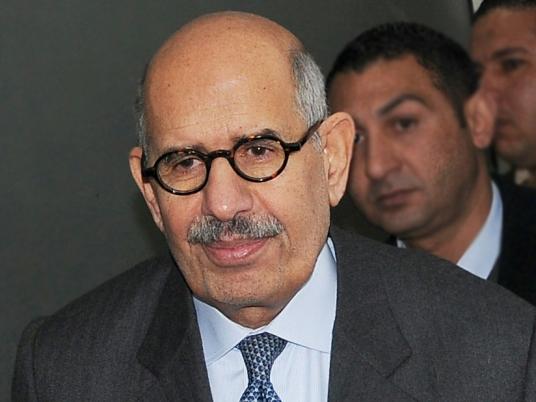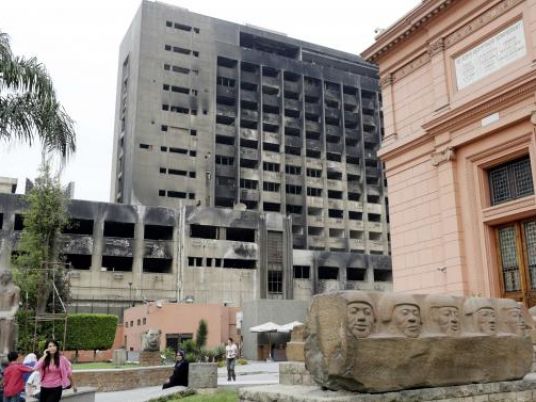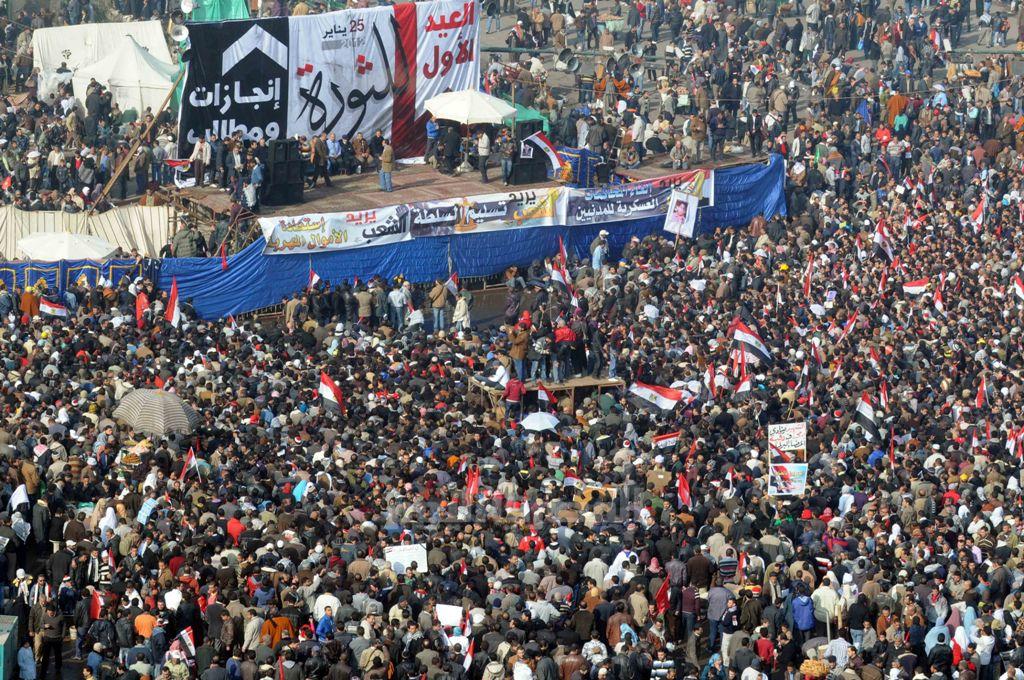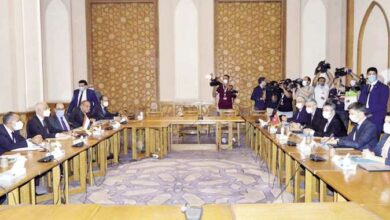Egypt's Muslim Brotherhood announced on Saturday that they will field candidates in the forthcoming parliamentary elections, ignoring calls to boycott a poll that lacks full judicial supervision and runs a high risk of vote rigging.
“When we decided to participate in the elections, we wanted to emphasize the idea of being proactive in society and to stress the necessity for people to exercise their constitutional and legal rights,” Mohamed Badei, the group’s Supreme Guide told reporters in a press conference.
Badei stated that a sweeping majority of 98 percent of the Muslim Brotherhood’s Shura Council had voted in favor of participating in the electoral race planned for late November. The group’s supreme body decided to compete for around one third of the parliament’s 518 parliamentary seats by fielding approximately 150 candidates, he added.
“This [decision] is meant to expose the regime and shake its legitimacy,” said Ali Abdel Fattah, a senior Muslim Brotherhood leader on the sidelines of the news conference. “If the Muslim Brotherhood withdraws from the elections, this will make the regime happy. If we participate, the regime will be forced to rig votes and may eventually go crazy, which will shake its popularity and legitimacy…This will be a major achievement.”
The Muslim Brotherhood is the largest and best-organized opposition group in Egypt. The Islamist organization, founded 82 years ago, remains officially banned by the ruling regime but is given leeway to mobilize followers among students and professionals. Under President Hosni Mubarak’s rule, the barred-but-tolerated group has been allowed to run for student unions, syndicates and parliament.
In 2005, the group chalked up a historical victory as it grabbed 88 seats in lower house of parliament and emerged as the largest opposition bloc in the people’s assembly. This electoral triumph coupled with the waning of foreign pressures exercised on Egypt to democratize promoted the regime to crack down on the group. Since late 2006, the government has launched massive waves of arrests targeting the group’s leadership as well as rank-and-file activists.
In the shadow of this persecution, the group failed to gain any seats in the Shura council elections held in 2007 and 2010. The nation’s oldest Islamist bloc has blamed all these electoral failures on vote rigging.
In his speech, Badei addressed the group’s members calling upon them to “resist all attempts to rig the national will and to chase counterfeiters and their supporters with all peaceful means available.”
Although full judicial supervision was guaranteed, the 2005 poll was marred by fraud and a level of violence that left 13 people dead. This year, observers contend that the level of vote rigging will be exceptionally high, as ballot boxes will not be fully monitored by judges as dictated by the 2007 constitutional amendment.
“We will confront vote rigging in an unexpected ways,” said Essam El-Erian, the group's spokesperson. “We still have plenty of cards to play, such as mobilizing people and holding sit-ins.”
The Muslim Brotherhood’s decision to run for parliament comes in the midst of repeated calls to boycott the elections both from within the group and from outside.
“The participation will give legitimacy to the ruling regime and portray it as if it holds democratic elections,” said al-Sayyed al-Meleigy. This 60-year-old Muslim Brotherhood member lost to an NDP candidate in the 2005 elections in a Cairo constituency allegedly because of police intervention. “In fact, there are no elections in Egypt”, he said.
To express his vehement opposition to participating, al-Meleigy signed a petition entitled “Boycott it, for Egypt’s sake”, which has been circulated in on the internet by young Muslim Brotherhood activists.
“We are participating in elections that we will eventually lose,” said Haitham Abou Khalil, a 42-year-old Muslim Brotherhood member who spearheaded the online campaign. “The Muslim Brotherhood is a major political force and it should not be engaging in cosmetic elections.”
Abou Khalil, whose membership was frozen earlier this year for his criticism of the group’s political outlook, claims that around 500 Muslim Brothers have signed his petition since it came out last week. .
The Muslim Brotherhood’s decision also comes in defiance of the reform plea made by the former head of the UN nuclear agency Mohamed ElBaradei. Last summer, the Muslim Brotherhood threw their full support behind ElBaradei’s seven reform demands including the lifting of the state of emergency, amending the constitution to ensure full judicial supervision of elections and the easing of restrictions on candidacy for the presidency. In July, the Muslim Brotherhood started to collect signatures through its widely-viewed website in favor of ElBaradei’s petition.
With today’s announcement, the group might be letting ElBaradei down. The 68-year-old former diplomat has consistently called upon opposition forces to boycott the elections as long as the regime refuses to listen to demands for fair and free voting. He has accused those who participate in the poll of acting against “the national will”.
“The Muslim Brotherhood’s decision came as no surprise. Nobody expected ElBaradei’s call to influence the Muslim Brotherhood,” said Diaa Rashwan, an expert on Islamist group with al-Ahram Center for Political and Strategic Studies.
“Participating in elections is a strategic matter for the Muslim Brotherhood,” he added explaining that the electoral season offers the best opportunity for the group’s cadres to gain a hands-on political training, spread their slogans and views and prove themselves as “a major political force”.
“By participating, all these objectives will be achieved whether the group has gained seats or not,” added Rashwan.
The Muslim Brotherhood group is toeing the line with major secular opposition parties including the liberal al-Wafd and the leftist al-Tagammu parties, which had earlier announced their participation.




